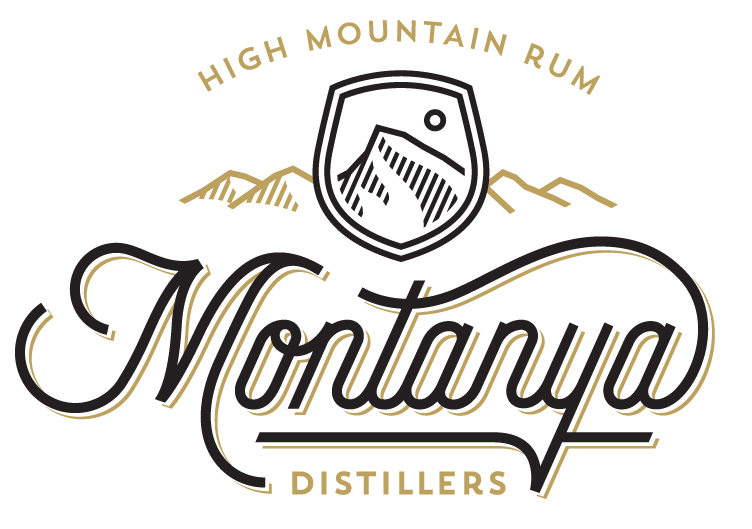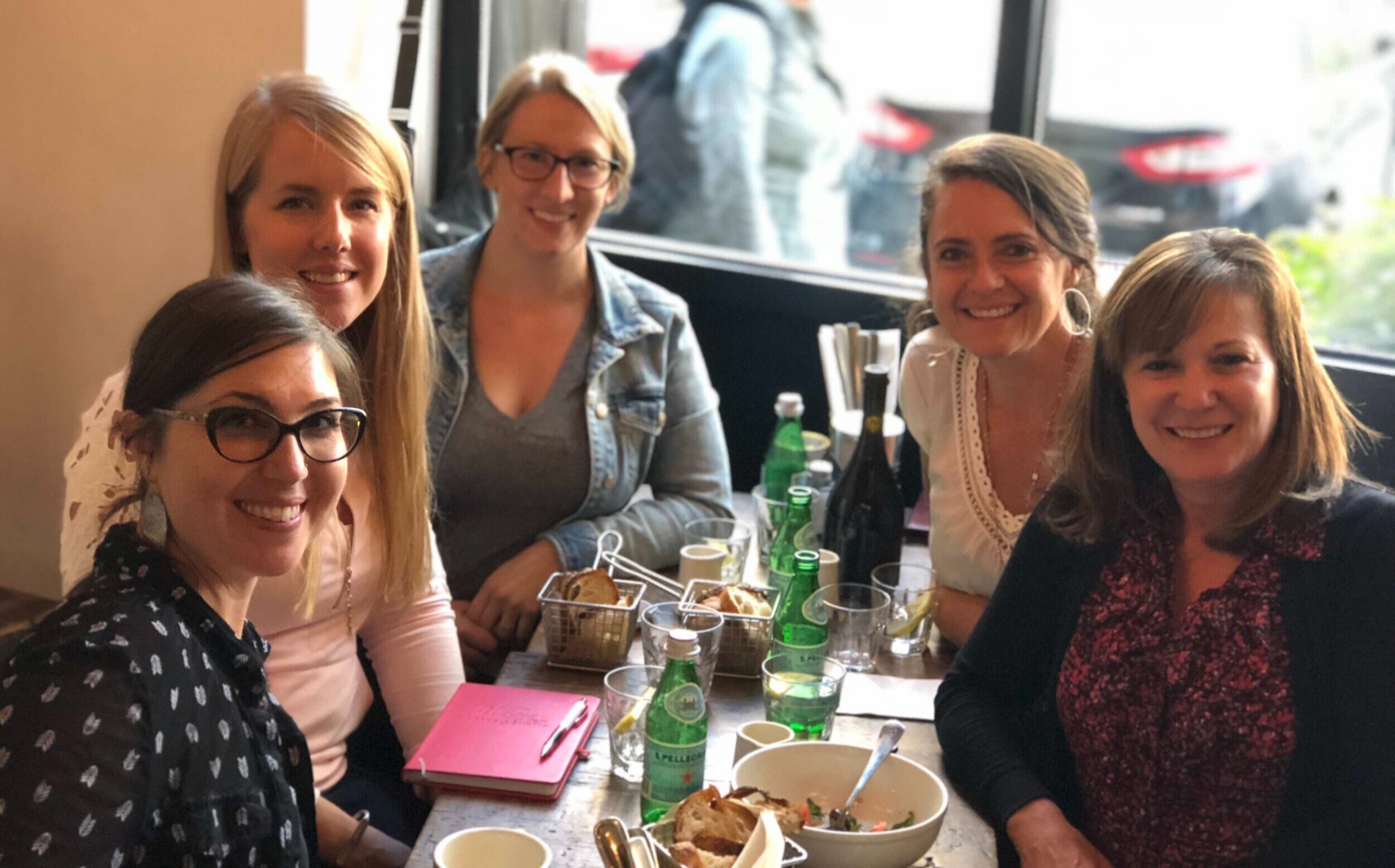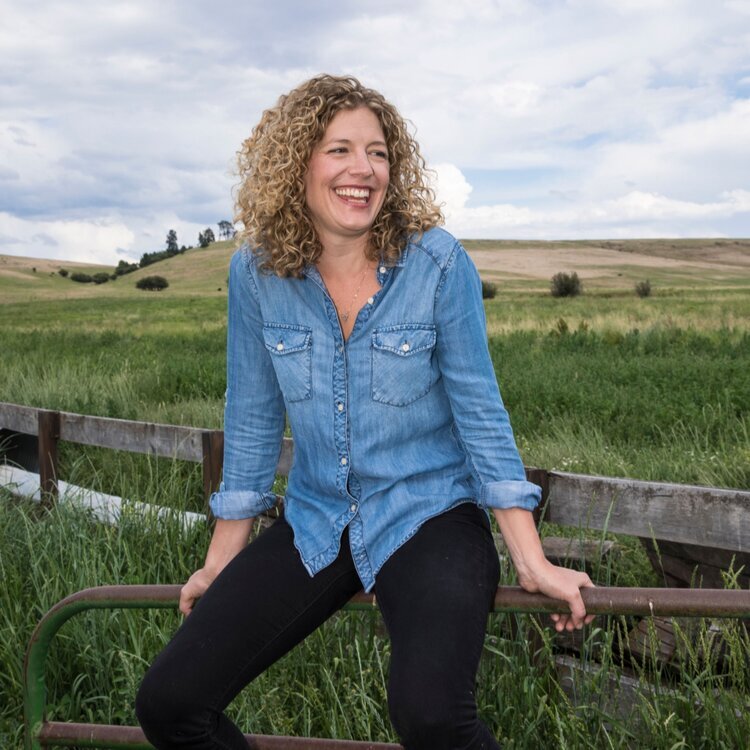The Power of Female Mentoring
When our Founder and Owner, Karen Hoskin, started Montanya Distillers, she was often one of the only women in the room. It came with a lot of misguided assumptions—most people assumed she was anyone but the owner and founder—and required that she spend a lot of time proving her expertise before she could get down to business.
Karen (second from right) with members of the Women’s Distillery Guild (now a subgroup of Women of the Vine & Spirits).
It had another impact as well: when it came to finding qualified mentors who believed in her, especially female mentors, options were slim to none. While there’s no doubt certain distillers proved invaluable with their expertise and time, few of them were women. Those who were didn’t have experience as owners and therefore hadn’t dealt with the same set of challenges. Karen mostly had to find her own way.
It’s one of the main reasons she now dedicates as much time as she can to supporting women in the distilling world, including distillers and distillery owners—she would have loved the same support. Karen also knows that many women come to distilling from other fields, and are less likely to grow up hearing about business and how to run one. And in the distilling business in particular, there are so many ways the industry breaks from business norms. Finding your way is not a linear path.
We asked fellow female distillers and business owners for their take on what makes female mentorship invaluable. While they’ve all mentored with Karen, perhaps the greatest part about these relationships is that they have a ripple effect. Mentoring, it seems, begets more mentoring and that means more successful women in the distilling business. It is also never a one way street, Karen learns so much from these colleagues too.
(We also share tips at the end for finding mentors.)
Home Base Spirits
Ali and Sam Blatteis are twin sisters who launched Home Base Spirits in Oakland, California in 2015. They were inspired by distillers who used the making of whiskey as a way to support local farmers, and have turned to mentors for help getting started and understanding pathways to growth.
Ali and Sam Blatteis, sisters who founded Home Base Spirits.
“Spirits are such a unique industry with a specific set of challenges for anyone looking to get a start, especially if like us, you don't have a background in the industry. We would not have been able to start our business without the mentorship and guidance of other distillers and producers…” Sam says. “We've routinely sought mentorship from other female producers because women experience these challenges differently, and we've been able to navigate them better with an understanding of those differences. Mentorship means inspiration for us. We get starstruck learning from Karen and our other mentors. Witnessing the successes of our mentors is what keeps us going, because we can see that our vision is achievable through their examples.”
Freeland Spirits
Jill Kuehler named Freeland Spirits after her grandmother, who she credits with teaching her that women can be anything they want to be. Mentors have played an important role in the founding and growth of the Portland, Oregon-based distillery.
Jill Kuehler, Freeland Spirits
“I have been incredibly fortunate to have a ton of amazing mentors. I came from the nonprofit world before distillery work, and strangely the transition from nonprofit to a small business makes a ton of sense because you know how to be scrappy. The boards I worked with from the nonprofit world—a lot of those people came on to be big supporters for me as I was starting the distillery and a lot have invested or been close advisors,” she says.
“In any industry women always have to be scrappy and fight a little harder… So having the perspective of women who’ve fought the fight and have that lived experience—of what they’re dealing with—is something a man can’t provide. Men can be super supportive and I’ve had amazing male mentors, but they don’t have that lived experience.”
Chemist Spirits
Founder and Distiller Debbie Word perfected Chemist Gin with her daughter, through many hours of moonshining. She believes that mentorship has been crucial to the craft distilling world as a whole. “Without mentorship within the craft distilling world, the entire industry would suffer. It is my belief that one of the reasons that the craft segment has been able to grow dramatically over the last decade has been the willingness within the community of craft distillers to share knowledge and advice, rather than sit back and watch the uninitiated slowly drown in poor decisions while reinventing the proverbial wheel.”
Debbie Word of Chemist Spirits
In 2015, she “stole” some of Karen’s time at Montanya’s Crested Butte distillery—a meeting that propelled Debbie on her own journey and inspired her to pay it forward.
“I still have the notes I took, sitting in her tasting room, while asking her a myriad of questions about her experience. And her answers and advice were invaluable. It was this time with her that gave me the confidence that I could in fact do this, but also opened my eyes to the struggles ahead. And because of this, now that I have built a growing, successful business, I feel compelled to ‘pay it forward’ whenever possible. I get great satisfaction out of spending time with hopeful new distillers and entrepreneurs, giving them insight into what they are about to take on, helping them avoid some of the pitfalls, and watching the excitement of a new adventure.”
The Industrious Spirit Company
Manya Rubinstein, ISCO, photo by Rachel Hulin.
ISCO lays claim to being the first distillery in Providence, Rhode Island since the prohibition, producing sustainably sourced vodka, gins and bourbons. Like so many others, CEO Manya Rubinstein didn’t get her start in the distillery industry. She worked at places like Vanity Fair and Google, ran an independent marketing consultancy, and published an arts/activism magazine. Mentors have certainly helped her find her way.
“In an industry with so few women in leadership positions, it is hugely helpful to have other women to look to for advice, camaraderie and support! It's always great to be able to ask a question to someone who shares your unique perspective on what it is like to be an industry outlier,” she says.
Lacie Thornton
Lacie Thornton is in the process of launching a new distillery. Having already gone from fishery scientist to distiller, she’s no stranger at taking on new challenges. Nor is she a stranger to working hard, motivated to prove that distilling is no longer a man’s world. Having valued mentors has been part of that journey.
Lacie Thornton
As she says, “There isn't a four-year degree in Distilling, and everyone has a different story of how they took the leap into our spirited industry. Having a mentor in a field where there is no straight path to get to where you are is incredibly valuable, as there are limited resources to go to when you need advice. Finding that right individual as a mentor is even more-so valuable particularly for women in a male-dominated industry such as ours. Thankfully, I have Karen. Mentorship and my relationship with Karen has given me the confidence and courage to make career-defining decisions.
“Karen is an individual I think of often when I'm having a rollercoaster of a day (in the best way possible)! WWKD (What Would Karen Do) comes to my mind very often, particularly over the past few months as I've had to make several pivots with my startup. Her calm demeanor and strong drive have given me much to look up to.”
Finding Mentors
Karen and craft distilling colleagues listen to author Katherine Wilkinson of Drawdown speak about reducing carbon emissions around the world.
Fortunately, the number of women in leadership positions in the craft distilling industry is growing. Finding mentors isn’t as challenging as it was even ten years ago. Here are a few tips of Karen’s for finding mentors:
Professional organizations are a great way to meet other women in the industry. Montanya Distillers is a corporate member of Women of the Vine & Spirits, which hosts a number of in-person and virtual events.
Conferences have also been a great way for Karen to make new connections and build lasting friendships. Some of her favorites include the UK Rum Fest, Tales of the Cocktail, and the Miami Rum Congress. She also regularly attends the American Distilling Institute and the American Craft Spirits Association conference.
Ask your network for input. Have a specific area of interest? Ask your existing friends and colleagues for recommendations.
Don’t be afraid to just ask but do your homework ahead of time. By nature and necessity, distillery owners are busy—you can demonstrate an awareness of that by being respectful of their time and having clear questions that relate to their expertise.
Don’t be discouraged by the word no. If one person passes on the opportunity, that doesn’t mean everyone else will too.









